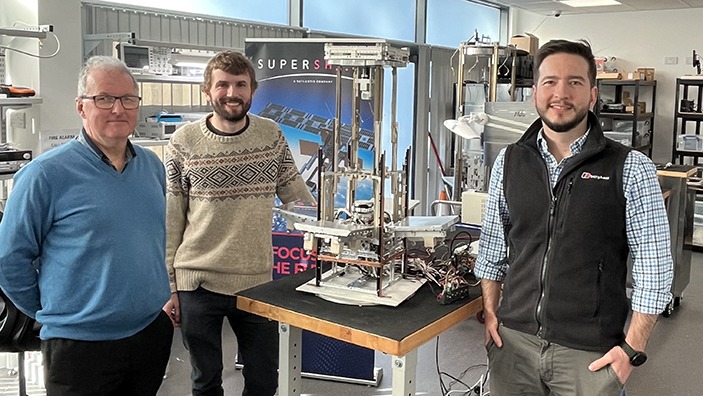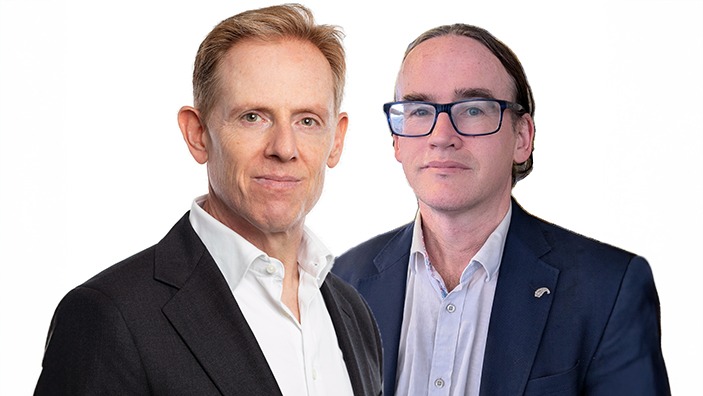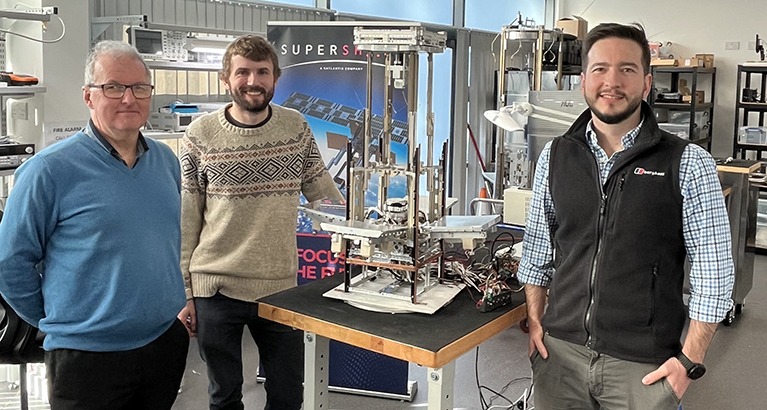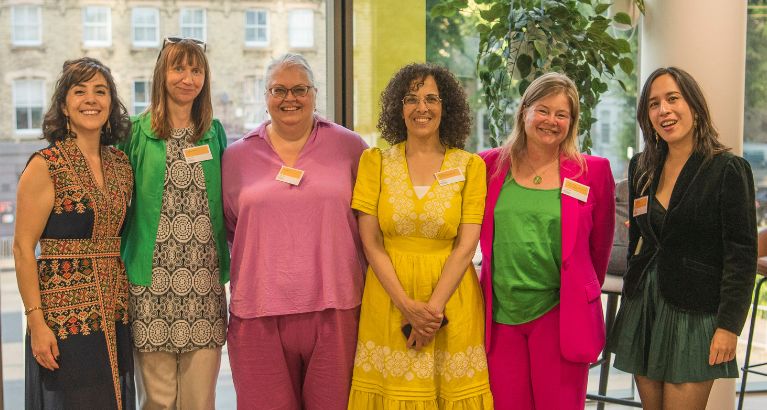Mimicrete
Concrete production accounts for approximately 8% of emissions worldwide.
Self-healing concrete can boost infrastructure durability and sustainability

Cambridge-based venture Mimicrete is pioneering a self-healing concrete technology that can significantly enhance the durability of infrastructure like bridges, tunnels, and marine structures – particularly in environments prone to high humidity, extreme temperatures, or heavy wear and tear. By reducing maintenance cycles and extending the lifespan of structures, this innovation aims to transform how the construction industry approaches infrastructure resilience and sustainability.
Co-founder Dr Liz Zijing says the technology incorporates a vascular network within the concrete, containing healing agents that are automatically released when cracks form. “Once released, these agents interact with the environment, forming solid compounds that close the cracks. This mechanism allows for continuous, autonomous repair of structural damage, reducing the need for human intervention, repairs, and maintenance over the lifespan of concrete structures.”
Technology could help reduce the global carbon footprint of concrete
“Concrete production accounts for approximately 8% of emissions worldwide,” Liz says. “By extending the lifespan of concrete structures and cutting down repair requirements, our technology has the potential to lower emissions associated with concrete replacement and maintenance, contributing to a more sustainable, low-carbon construction industry.”
With a background in management consulting and PhD in engineering, Liz says she was inspired by nature’s self-repair mechanisms and this sparked the idea for self-healing concrete. In 2021 the idea turned into Mimicrete.
In the same year Liz joined EnterpriseTECH programme, run by the Entrepreneurship Centre at Cambridge Judge Business School. She says this was a transformative experience for both Mimicrete and her personal growth. “The programme equipped us with invaluable insights into business strategy, IP protection, and navigating industry partnerships, all of which have been essential for Mimicrete’s growth,” Liz comments. “Personally, the mentorship and entrepreneurial training expanded my approach to problem-solving and strategic planning, strengthening both my leadership skills and our venture’s roadmap.”
SuperSharp
Our unique deployable optics technology dramatically reduces the launch size for any space optical system.
SuperSharp, founded in 2017, is developing unfolding space telescopes to capture high-resolution thermal infrared (TIR) images of the Earth.
Capturing images day and night at a reduced cost

Co-founder Marco Gómez-Jenkins says TIR images have distinct advantages over traditional optical images. These include detecting energy differences (ie crop monitoring), capturing images day and night, and capturing images through moderate cloud or smoke.
SuperSharp’s flagship technology consists of unfolding, self-aligning, lightweight telescopes that can be launched as very small and light satellites and become large powerful telescopes once in orbit. “The bigger the telescope is, the better the definition it can deliver. Our unique deployable optics technology dramatically reduces the launch size for any space optical system, hence drastically improving capability for a given cost,” he says.
Using thermal imaging to help tackle buildings’ carbon emissions
Approximately 28% of global carbon emissions come from operations of buildings, including energy to heat and cool them. “By measuring the heat emissions in the built environment directly, frequent high-resolution thermal imaging identifies exactly where and when significant energy use occurs – enabling governments and businesses to take targeted action to improve energy efficiency and reduce energy,” he says. “This is vital in the effort to transition to a net zero society and meeting the UK’s Net Zero targets.”
It all started as a research project at the Institute of Astronomy, University of Cambridge, focused on developing unfolding space telescopes to look for life on other planets. The Principal Investigator was Professor Ian Parry, while Dr George Hawker joined as his PhD student and Marco led commercial efforts. Commercial operations started in December 2020, after securing a first grant from the UK Space Agency, and the team has now grown to 26 people.
The Accelerate Cambridge programme, run by the Entrepreneurship Centre at Cambridge Judge, helped with transition from a research project to a startup. “The support that we received and continue to receive has been extremely valuable to develop our venture,” Marco says.
GetZero
According to the UN, by 2030 there will be 24 million new green jobs worldwide, 650,000 jobs in the UK.
GetZero, a venture founded in 2021, has created a digital platform that helps young people develop green skills for careers that can have a positive impact on the planet.
Green skills for future jobs

“According to the UN, by 2030 there will be 24 million new green jobs worldwide, 650,000 jobs in the UK,” said co-founder Joe McFadden. “But right now only 10% of workers have at least one green skill. This is one of the biggest barriers to achieving decarbonisation goals across all sectors of the economy.”
Joe met other co-founders Matt Robinson and Olivia Partington at the climate tech accelerator Carbon13 in 2021, where they explored several ideas related to climate education. GetZero’s core team is now based in London and work with a range of experts in education, behavioural science and AI.
Initially, they developed a solution aimed at helping students decarbonise their homes, before expanding to tackling the green skills gap.
“GetZero’s game-based learning deeply engages students and provides personalised learning support,” Joe says. “A learner can understand home retrofit skills through a simple simulation of their home, as a stepping stone to developing green skills and gaining awareness of green careers.”
Working with schools and colleges to empower young people
Students can use the platform for free and the team is working with construction and energy companies that want to recruit young people into green careers. GetZero ran an initial pilot with several schools and further education colleges this year, and is planning to involve more schools in 2025 when they roll out a new AI career coach for green skills.
GetZero joined the Accelerate Cambridge programme in 2022. Joe said Accelerate Cambridge’s “incredible coaches have helped us think through our business model and refine our value proposition to companies who need to upskill their workforce for Net Zero.”
The Entrepreneurship Centre at Cambridge Judge Business School offers various programmes to encompass the full entrepreneurial journey, including:





